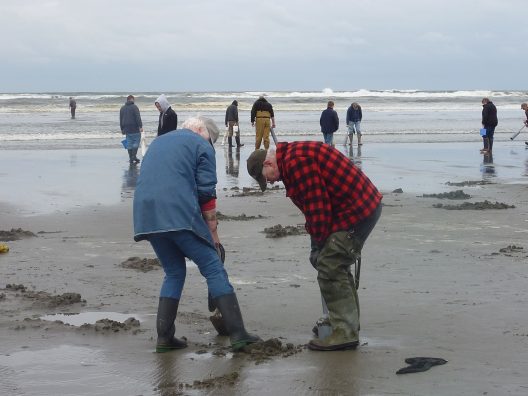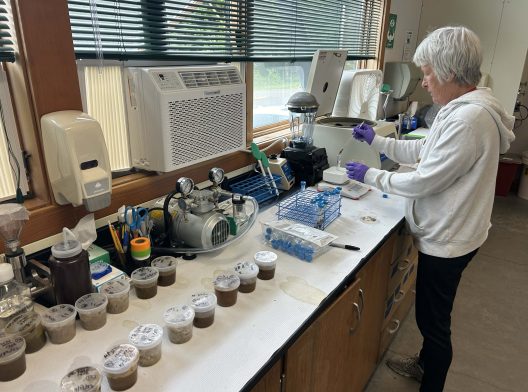SEFS field station, the ONRC, and its research scientists featured in The Seattle Times: UW program works with tribes to fight toxins behind shellfish harvesting closures

The Olympic Natural Resources Center (ONRC) out on the Olympic Peninsula in Forks, Washington is working with four tribes in the region to test for potentially deadly shellfish toxins. The Quinault Indian Nation, Hoh, Quileute and Makah tribal members have been trained by Anthony Odell, an ONRC Research Analyst, to collect and sample razor clams for algal species and toxins, specifically domoic acid.
In a recent interview with The Seattle Times, Vera Trainer, an aquatic sciences director at UW’s Olympic Region Harmful Algal Blooms program or ORHAB shared that this testing is being done at a time when climate change is having significant impacts on harmful algae blooms.
In 1998 and again in 2015 domoic acid was responsible for making a lot of people sick and closing harvest areas in Washington and Oregon. Domoic acid can cause amnesic shellfish poisoning in humans and animals. Since that time, ORHAB has created a rapid test that can allow for a quick assessment of the shellfish. This testing is incredibly important for the tribes who rely on shellfish as a way of life and spiritually.
Recently, a new species of toxin has been rearing its ugly head – Alexandrium catenella. Its appearance in local shellfish means that ORHAB is hard at work developing a new rapid test. Trainer and Odell are in the process of expanding the testing program and reaching more individuals among the tribes.
